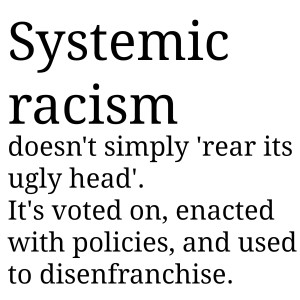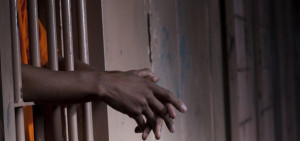Special prosecutors are independent attorneys who are appointed to investigate, and if necessary prosecute, government officials for misconduct. They are typically used in cases where there is a significant risk that conflicts of interest will prevent traditional prosecutors (also known as “district attorneys” or “DAs”) from fairly and accurately seeking justice in the case.
Since its inception, the Center for Law and Social Justice has fought to have special prosecutors used in cases where police officers are accused of using excessive force that leads to the injury or killing of unarmed people. When one analyzes the cozy and intimate relationship between local DA offices and police departments and the continuing role of racism in the criminal justice system, it is clear that a permanent special prosecutor is absolutely necessary in these cases. In light of the way the Brooklyn DA’s office handled the sentencing of NYPD Officer Peter Liang for the killing of Akai Gurley, it is imperative that now, more than ever, the New York State Legislature and Governor Cuomo work to create a permanent special prosecutor to bring charges against police officers who are accused of using excessive force that leads to the injury or killing of unarmed citizens.
Role of a District Attorney
The DA is responsible for bringing criminal cases against defendants who are accused of committing a crime. Because of the way our legal system is structured, a DA’s ability to do his or her job effectively requires them to have a good working relationship with the local police department. As noted in the article entitled Who Shouldn’t Prosecute the Police by Kate Levine, a DA typically cannot win a criminal case without active police cooperation.
“…the police create and control the facts of most criminal cases: ‘The police have, at a most fundamental level, the ability to select facts, to not seek facts, to evaluate facts and to generate facts.’ Officers are responsible for getting statements from often reluctant witnesses, for interviewing and supporting victims and families, and for gathering physical evidence that may appear unimportant but could have enormous impact later on in the process. ‘Facts in this sense are not objective entities which exist independently of the [police] but are created by them.’”
Because a DA’s case relies on their ability to prove facts, facts which the police have a direct hand in developing, district attorneys’ offices have a structural dependency on their relationship with police departments – which means that when the DA’s office has to investigate the police, there is a conflict of interest present that severely undermines the pursuit of justice throughout the entirety of the investigation and any subsequent prosecution. That conflict of interest can be minimized when a truly independent special prosecutor is responsible for cases where police officers are being investigated.
The Akai Gurley Case
The Brooklyn DA’s office has taken many positive steps to advance justice in the borough, including the Begin Again Program; the Conviction Review Unit; and the Back on Track youth diversion program. We commend these efforts to enhance our local criminal justice system. That said, nothing in recent memory exemplifies the need for a permanent special prosecutor to investigate and prosecute police officers better than the actions taken by the Brooklyn District Attorney’s office in the sentencing after its successful prosecution of NYPD Officer Peter Liang.
Under DA Ken Thompson’s leadership and legal prowess, Officer Liang was indicted and convicted for manslaughter in the killing of Akai Gurley, an unarmed African-American man. As attorneys committed to racial and social justice—and as members of the Black community—we know how rare it is for a police officer to be thoroughly prosecuted for killing an unarmed Black person. Names like Eric Garner, Mike Brown and Eleanor Bumpurs ensure that we never forget what is at stake anytime an officer is actually prosecuted for that type of crime. So when news came that the jury found Officer Liang guilty, our office was elated that the Brooklyn DA was able to pull off the legal equivalent of catching a unicorn.
This is particularly important because in the past, DA Thompson disagreed with the concept of a special prosecutor and argued vociferously for the right to prosecute cases against the police as a district attorney. While appearing on WNYC’s Brian Lehrer radio show in an episode on race and justice, DA Thompson stated why:
“…As the duly elected district attorney of Brooklyn, I’m more than able to thoroughly and fairly investigate any fatality of an unarmed civilian by a police officer…I ought to be able to… prosecute these cases. I get that people are upset because of Ferguson and Eric Garner. But that doesn’t mean I should be robbed of my right to prosecute these cases…”
What DA Thompson failed to realize, however, is that systemic unfairness is bigger than any one individual person’s “right” to operate within that system.
District Attorneys Gone Wrong
That aside, it is what DA Thompson did after winning that conviction that troubles us greatly and speaks to the heart of the conflicts that arise when local district attorney offices handle police involved killings instead of special prosecutors. After winning a conviction against Officer Peter Liang for Gurley’s death, DA Thompson took the highly unusual route of recommending that Officer Liang receive no jail time for his crime. The presiding judge in the case, Judge Danny Chun, embraced that recommendation and reduced Liang’s charge and sentenced him to a mere five years of probation and 800 hours of community service.
The jury in this case did its job admirably. But the district attorney’s office and the judicial system did not.
In response to the subsequent community outcry, DA Thompson wrote an article where he stated that he made that particular recommendation in part because:
“We had an obligation to recommend a sentence that, while recognizing the gravity of the crime and its tragic consequences, also took into account whether the defendant’s incarceration was necessary to ensure public safety… Liang’s criminally reckless actions took the life of a young father and robbed a family and community of their loved one. However, no evidence suggested that Liang, who had an unblemished record as an officer, intended to kill or even hurt Gurley or anyone else that night.” (Emphasis added)
This phrasing is curious. It would seem to suggest that under DA Thompson’s administration, when a Brooklyn defendant is convicted of manslaughter, if there is no indication that the defendant actually intended to kill or hurt the victim and was not otherwise a threat to public safety, then those defendants should also anticipate getting sentencing recommendations of no jail time. If that were part of a new, system-wide practice implemented by the Brooklyn DA’s office, then we would welcome what may be a bold new step in progressive sentencing reform.
However, according to a call-to-action issued by the Attorneys of Color Caucus of the Association of Legal Aid Attorneys, that is not the case. In response to DA Thompson’s actions in the Akai Gurley case, the group issued a statement on its Facebook page where it declared:
“As public defenders, we represent poor and working class communities that are predominantly people of color. We represent young Black and Latino men, who are overwhelmingly impacted by racist policies, such as Stop and Frisk and Broken Windows… Rarely does the District Attorney’s office ever recommend probation after obtaining a guilty verdict after a jury trial. More often than not, irrespective of the charges, violent or nonviolent, the DA’s office recommends jail time for our clients…Our clients are human beings and deserve that same consideration that the District Attorney’s office showed Peter Liang in their sentencing recommendation…The disparate treatment Peter Liang received, as an officer of the New York City Police Department, who killed a young black man, is a reflection of the organized hostility toward poor communities of color.” (Emphasis added)
Indeed. The treatment Officer Liang received was the complete opposite of the way that Black and Brown non-police defendants are typically treated by the Brooklyn DA’s office. We must recognize that disparate treatment is one of the many ways that racist, anti-Black sentiments continue to permeate the criminal justice system, even when key players in that system are also of African descent.
Past is Present
Neither the call for a permanent special prosecutor nor the failure to create one, are new. As noted by L. Joy Williams, president of the Brooklyn Branch of the NAACP, “in 1949, after multiple cases of brutality and deaths at the hands of police officers in Brooklyn, the Brooklyn branch [of the NAACP] launched a campaign to urge Governor Dewey to appoint a special prosecutor to handle the cases.” This discussion is an on-going part of the history of white supremacy that saturates the criminal justice system. The fact that racism produces discriminatory results in the criminal justice system has long been deemed “acceptable” the judiciary. That history supersedes the power of the individuals working within it. That history shows up when the justice system doesn’t value Black victims the same way it values non-Black victims. It shows up when we give preferential treatment to non-Black defendants while exacting the harshest of punishments for Black defendants.
This is why we must ensure that we take the steps necessary to minimize the types of conflicts that allow for Black lives to continue to be devalued by systemic failures long promulgated by racism. We must continue the fight to have a permanent special prosecutor intervene in these cases; an independent attorney from the outside who can help mitigate the impact of the inherent unfairness of the criminal justice system. We call on Governor Cuomo and the members of the New York State Legislature to work together to create a permanent special prosecutor in the State of New York.
(This article initially appeared at CLSJ.org and is reprinted here with permission.)











Speak Your Mind